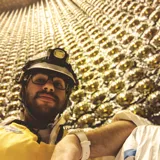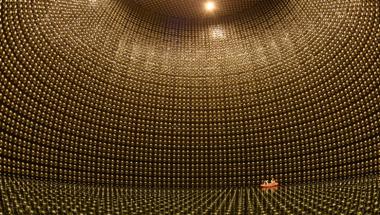
Dr Alexander Goldsack
Research Associate
Research interests
- Physics
Contact details
Biography
Alex Goldsack is a Postdoctoral Research Associate in the Experimental Particle & Astroparticle Physics group at King’s College London, working in the field of neutrino physics. After graduating with an MPhys in Physics with Particle Physics & Cosmology from Lancaster University, Alex completed his DPhil at the University of Oxford on a joint Oxford & Kavli IPMU scholarship.
During this time, he was partly based at the Kamioka Observatory in Japan, working hands-on with the Super-Kamiokande water Cherenkov detector. Alongside this, he worked on a search for neutrinos produced in nuclear reactors during Super-K's gadolinium-loaded phase, the topic of his thesis. His work on reactor neutrinos continues at King's, and his experience gained during his time working hands-on with SK feeds into his primary work as a postdoc, revolving around the upcoming Hyper-Kamiokande experiment. More specifically, he is working on the design and installation process of its outer detector, to be used as a cosmic muon veto.
Research interests
- Large-scale water Cherenkov detectors, especially those with gadolinium doping.
- The monitoring of nuclear reactor activity at a distance via neutrino flux measurements.
- Machine learning-based event classification and reconstruction techniques.
- Inverse beta decay searches and other low-energy neutrino physics.
- High-performance computing and intelligent trigger systems.
Research

Experimental Particle & Astroparticle Physics
The aim of the EPAP group is to address some of the major open questions in our understanding of matter through the study of the nature of fundamental particles
Research

Experimental Particle & Astroparticle Physics
The aim of the EPAP group is to address some of the major open questions in our understanding of matter through the study of the nature of fundamental particles
